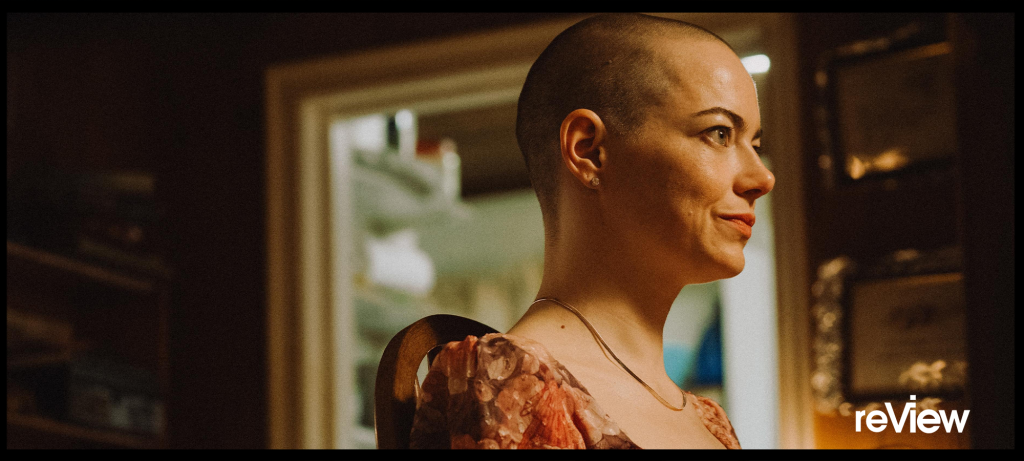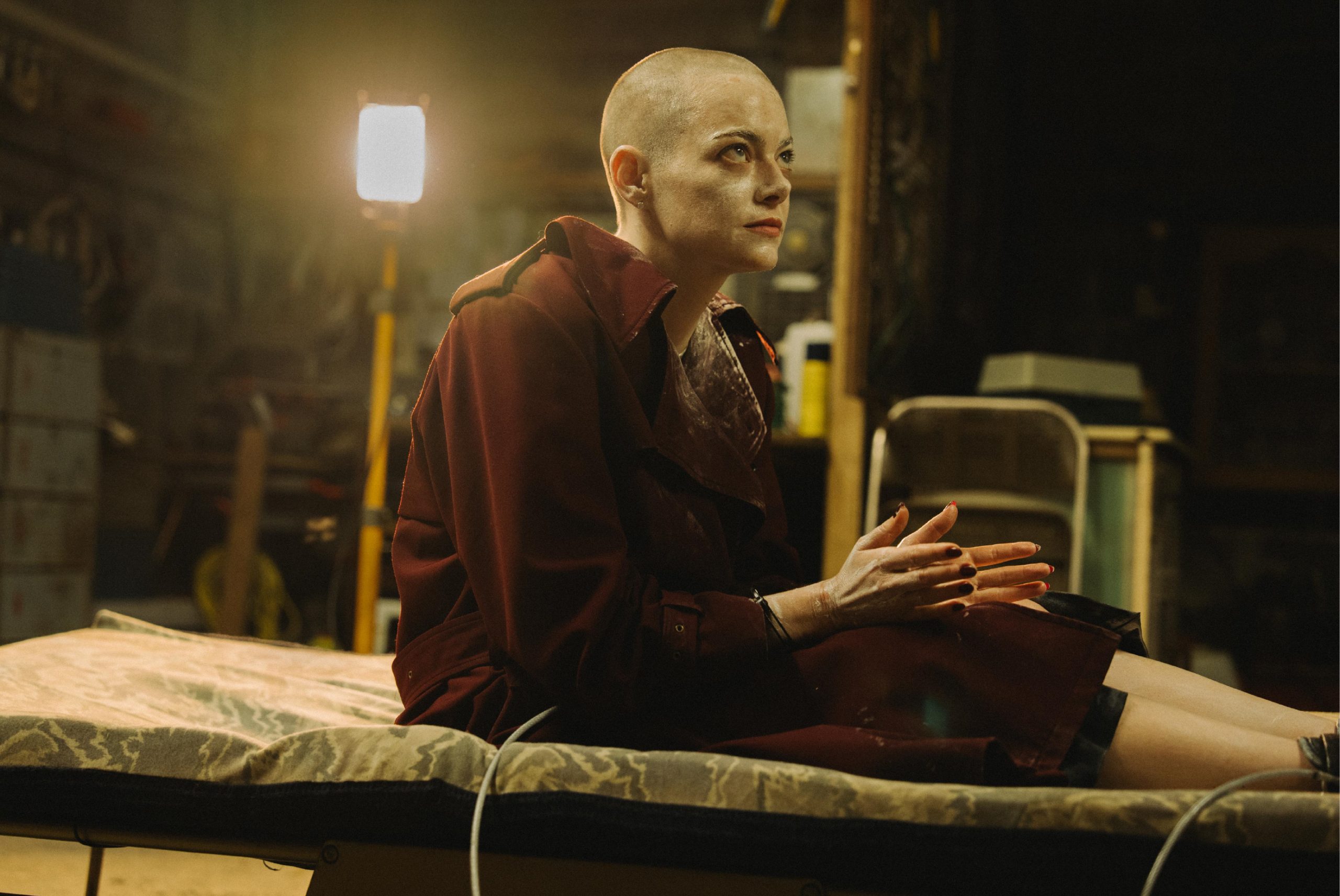

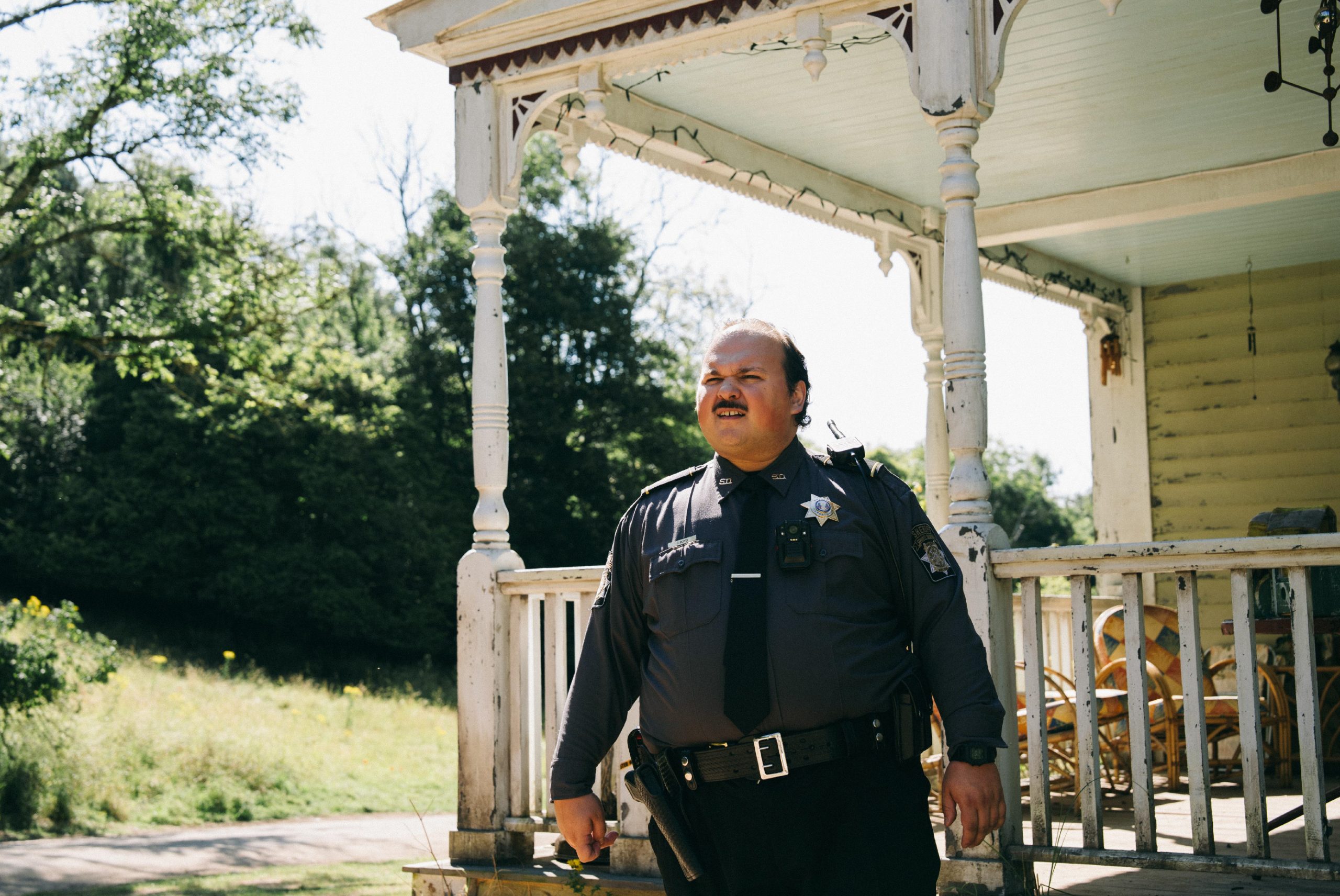
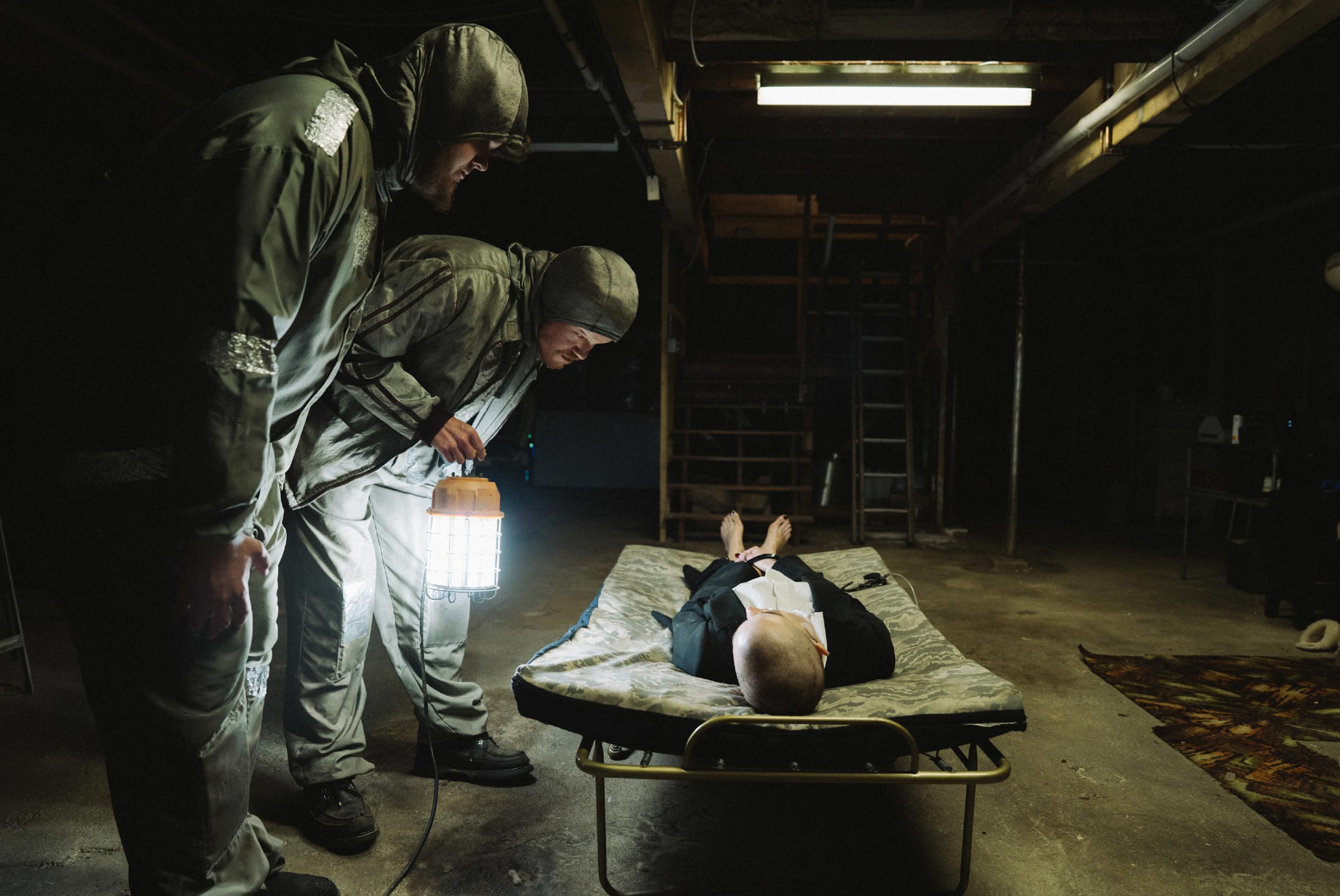
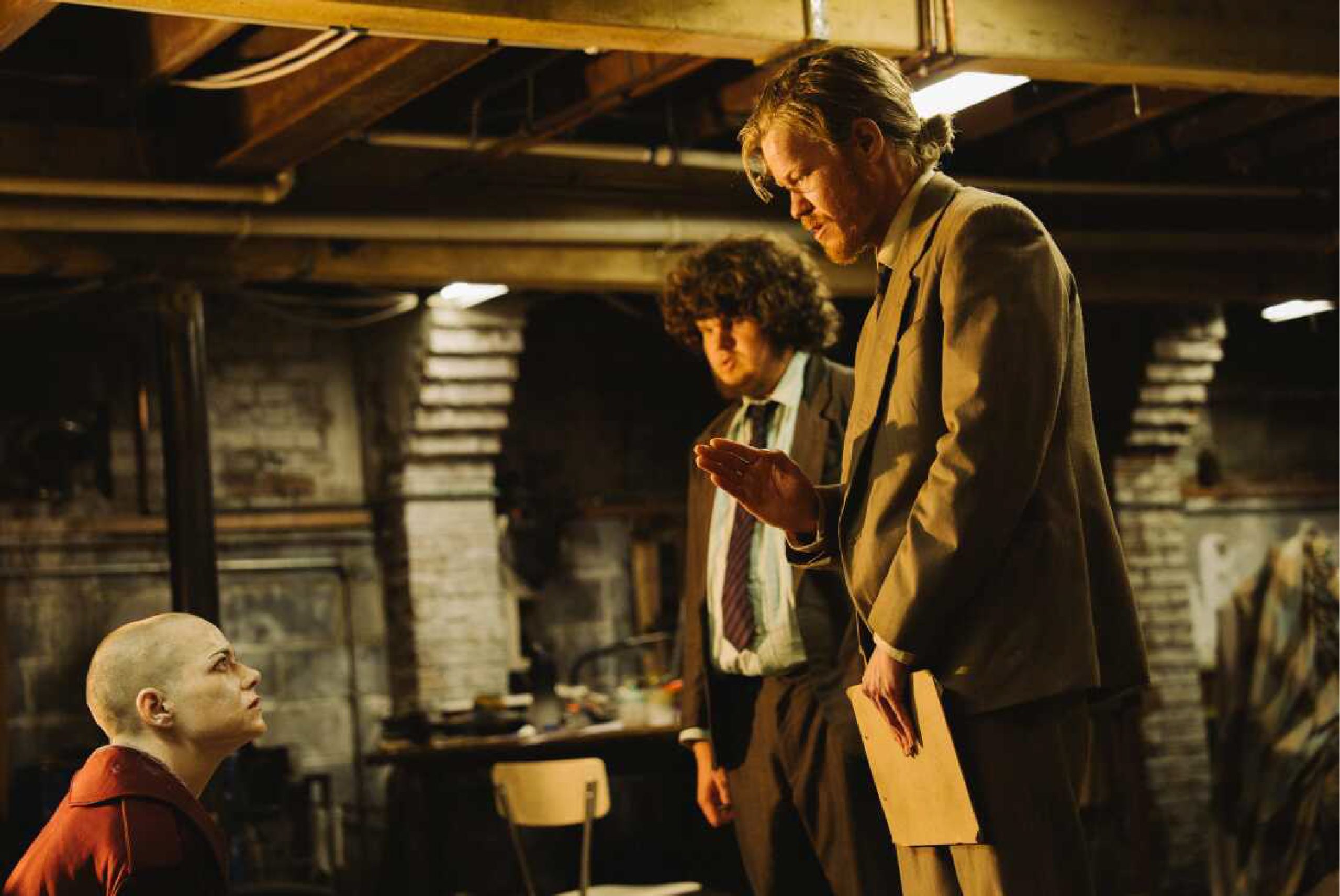
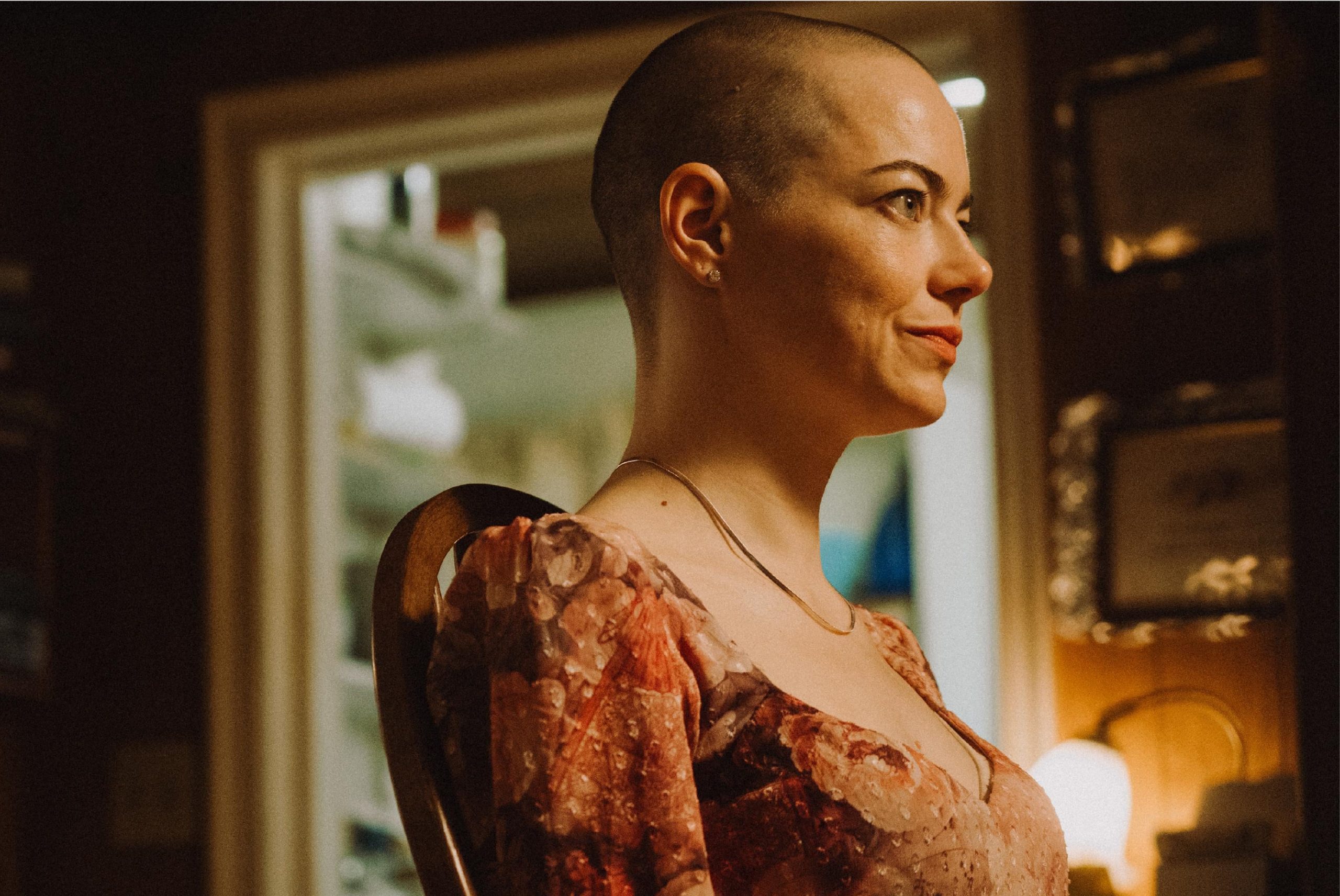
RATING
Director(s): Yorgos Lanthimos
Country: United States
Author: Will Tracy, Jang Joon-hwan
Actor(s): Jesse Plemons, Aidan Delbis, Emma Stone
Written by Tom Augustine
When I think about the world as it stands right now, when I allow myself to wallow for a little too long, I get a feeling like I’m on the losing side of a tug-o’-war, when the rope starts reeling away through your hands, and you can see the people ahead of you toppling to the ground. At my most self-serving, nihilistic moments, the scale and speed of the bad news swirling around us constantly feels like it has shifted recently, almost imperceptibly, from something we can do something about to something we’re going to have to ride out together. This is, of course, not the case — and indeed the intention of certain neo-fascist actors to ‘flood the zone’ with moral and ethical crises at such a clip that they’re impossible to keep up with is intended to produce this kind of effect — but the notion that a lot of folks have given up feels especially palpable right now. With all the depressing news hitting us at all hours of the day, the thing that keeps me up at night are the stories that slip through the cracks — while we’re concerning ourselves with the destruction of sections of the White House or the very real possibility that the current US President won’t follow term limit laws come 2028, we miss the news that mosquitoes have been discovered in Iceland for the first time in history, or that the Trump administration has allowed for drilling in one of the last untouched nature preserves in North America. One of the most prevalent gags I saw around the beginning of this era was the general sense of disinterest that came with the revelation that the US government may have been suppressing the possibility of alien life for decades — with everything that’s going on, who has time to worry about the presence of non-human entities among us? Wouldn’t eradication by some high-tech alien race be a relief? Don’t blame me, I voted for Kodos.
For all the overwhelming news, there are those who dedicate themselves to a small corner of an issue, determined to highlight or reveal the truth — even if such undertakings are misguided. These sorts of characters are great fodder for our current era — in Tim Robinson’s currently-airing The Chair Company, or Ari Aster’s recent COVID-Western Eddington, for example, everyday slobs wrest some sense of control in a world where nothing is assured by descending into sinister rabbit holes of their own making. The best of these may be David Robert Mitchell’s wonderfully nasty Under the Silver Lake, which chomped into the self-fulfilling mania of conspiracy belief with real vigour and insight. Such a pair are at the heart of Bugonia, the timely and provocative new film from Greek auteur Yorgos Lanthimos, which tells the story of the kidnapping of a high powered CEO (Emma Stone) at the hands of a pair of brothers (Jesse Plemons and Aidan Delbis) convinced that she is a high-ranking member of an infiltrative alien race. Lanthimos as a filmmaker has never been more well-known, but to my mind his recent work has been a series of diminishing returns. Since his international breakthrough of The Lobster, Lanthimos’ pneumatic formalism and piquant sense of humour has found purchase in various genres, from Greek tragedy (The Killing of a Sacred Deer), to the period piece (The Favourite) to the Frankenstein legend (Poor Things) — but his usual nastiness and severity have been undercut along the way. Two of his most (over)praised films, The Favourite and Poor Things, traded the edge Lanthimos had cultivated for years for ever-broader caricature and watery platitudes. The tossed off, seemingly improvisational nature of last year’s Kinds of Kindness was a step in the right direction — but felt like a doodle in the margins, rather than a genuine return to form.
Full of nervous energy and deep melancholy, Yorgos Lanthimos’ excellent kidnapping thriller is his finest work since The Lobster, in which the hugely successful auteur relinquishes some of his tight formal control to allow genuine humanity to filter in. Bolstered by two career-best performances from Emma Stone and Jesse Plemons, it’s the rare ‘film of our time’ that doesn’t overplay its hand.
Thankfully, Bugonia is that film — a haunting and unsettling kidnapping thriller that sets its sights on the modern neuroses of our current zeitgeist mostly without overplaying its hand, or becoming mired in ‘the discourse’. Like contemporaries Ari Aster and Paul Thomas Anderson, Lanthimos has this year decided to turn his attention to ‘where we are’, but manages it in a way that puts modern directors who have built their brands on having their fingers on the pulse (looking at you, Adam McKay) to shame. It is also Lanthimos’ most robust and accomplished work from an emotional standpoint in quite some time — one feels the director relinquishing some of the exacting formal control that has become his trademark, perhaps a sign of a director comfortable enough in his own abilities to explore the fuzzy outskirts of his style, to great returns. The film is a thriller first and foremost — it is, as with most Lanthimos, blessed with moments of absurd humour, but the film I thought of the most was Dog Day Afternoon, another livewire, ticking-clock potboiler boosted by sublime performances.
Emma Stone collaborates with Lanthimos for the fourth time, a mixed-bag body of work that here finds its clearest and most resounding impact. Stone plays Michelle Fuller, a high-powered CEO adept at both frosty ruthlessness and the kind of ego-massaging faux-pleasantry expected of women in high-powered positions. It’s Stone working in the mould of The Curse, which is a good thing, as that remains her finest work to date. Somewhere around the time of her first Oscar win for La La Land, Stone began to shift from the engagingly frank, down-to-earth warmth of her younger persona to a more remote, occasionally deliberately alienating presence that suggested she wanted to distance herself from boxes people were content placing her within. I occasionally find myself longing for the relatable Stone era — so many of our great actresses often find themselves transitioning into more serious, actorly roles as they grow older and more established: it’s what made Jennifer Lawrence’s decision to star in last year’s No Hard Feelings so refreshing. Here, Stone seems almost to have crafted a role that comments on the actress’ position in Hollywood itself — her Fuller is controlled to such a level of rigorousness that it’s not outside of the realm of believability that she actually could be an alien skinwalker. There’s a cold disconnectedness that Stone has become exceptionally good at conveying through her eyes that ensures that this is the most switched on she’s felt in years. As good as she is, Bugonia is yet another reminder that her co-star, Jesse Plemons, may be the finest young actor in the game right now. As Teddy, the headstrong alpha of the brother pair that kidnaps Michelle, he is terrifying, heartbreaking, and pathetic in equal measure. Plemons has built a career playing oddballs, psychopaths and schlubs (occasionally all three at once) — here, he is so remarkably naturalistic that the friend I saw Bugonia with remarked that he forgot he was watching a performance at all. It might just be my favourite performance of a year packed with remarkable ones.
When is a twist not a twist? For those who have seen the film Bugonia is based on, the Korean film Save the Green Planet, where Bugonia is specifically headed will not be a surprise. Indeed, those who know Lanthimos’ work or are attuned to the kind of streams this film flows in will likely know what to expect as Bugonia mercilessly launches into its third act. That Lanthimos actually goes there is a rewarding reminder of the kind of fearlessness that established his dominance in the arthouse sphere in the mid-2010s (another major Venice title of 2025, Kathryn Bigelow’s A House of Dynamite, could have benefitted from making a similar commitment to its own final destination). Like many of his other films, Lanthimos’ capacity to shock and to upend his narrative with moments of violence or humour remain intact — but what sets Bugonia apart is the robust undercurrent of sadness that some seem to have read (or misread) as cynicism, nihilism or smug holier-than-thou posturing.
Where Lanthimos’ more recent efforts have felt sidetracked by their own cruelty (Sacred Deer) or forced whimsy (Poor Things), Bugonia’s hopelessness feels rooted in real feeling, feeling that has sprouted from within the human figures at its centre. The standard criticisms of Lanthimos, ones that I’ve certainly responded to in the past — his tendency to lean on shock tactics, his muddled politics, a sense that everything has been (intentionally) overcooked — are certainly present here, but weren’t nearly as diverting as they have been in the past. Perhaps it is because, even with the formal pleasures of Bugonia, its exquisite lensing and performances, there’s a willingness to sit in the discomfort of contradiction, even messiness. Where the film arrives is an extended, poetic outro that leaves us to stew in the upsetting moral ambiguities of what we’ve seen — it begins to feel like a coda for a society unable to reckon with its own failings.
Bugonia is in cinemas now.

